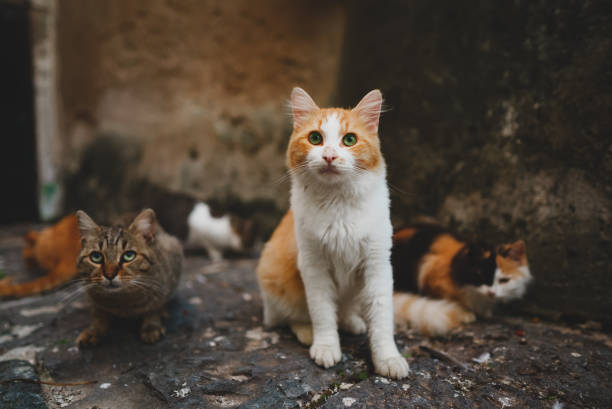The island of Cyprus in the eastern Mediterranean has always been known as the “cat island”, with 1.5 million cats in the world and the oldest known birthplace of domestic cats, attracting many cat lovers to visit every year. However, it has been reported that the outbreak of feline coronavirus on the island in recent months, since January this year, more than 300,000 cats have died, that is, one fifth of the cats have died, resulting in a “cat island”. Moreover, the virus is highly likely to have crossed the ocean, formed an epidemic in a similar region, and even joined the Eurasian region with human footprints.

Cat Island
Cyprus, a country weary of cats, has a long history with the furry plants – archaeologists here have found evidence of their domestication going back 9,500 years.
But the cat coronavirus outbreak began in January on the island of 1.2 million people. According to the British “Daily Mail”, “Daily Telegraph” and other reports, the case initially started in the capital Nicosia, but because the virus is highly contagious, it has spread rapidly across the island within three to four months, So far, 300,000 cats, including domestic cats, have died from Feline infectious peritonitis (FIP) caused by the coronavirus.
Symptoms of feline infectious peritonitis include fever, abdominal swelling, mental loss, and sometimes increased hostility. The virus does not affect humans, but it is deadly to cats and usually affects kittens and young cats.
Danielle, a master of feline plant medicine at the University of Edinburgh in the United Kingdom, said that the outbreak of this scope is unprecedented, and the epidemic is still expanding, and it has been confirmed that Turkey, Lebanon, and even Israel have been “violated” by the virus. She said: “If this virus reaches the UK, it could lead to the death of many of our cats, which would devastate the population and we have to take this seriously.”
To stop the epidemic, experts hope to start applying two treatments to cats. remdesivir, which treats human corona-viruses, and the closely related GS-441524, although approved for plant use in the UK and imported to Cyprus, are expensive – £2,500 to £6,000 for a cat weighing between 3kg and 4kg.
Another potential option is a cheaper antiviral drug used to treat human coronaviruses called molnupiravir, which is relatively inexpensive and costs around £170 to treat a cat. However, the Cypriot government adopted the drug request in May this year on the grounds that “drugs for human use should not be used on plants”, and the public only bought drugs through the dark market.